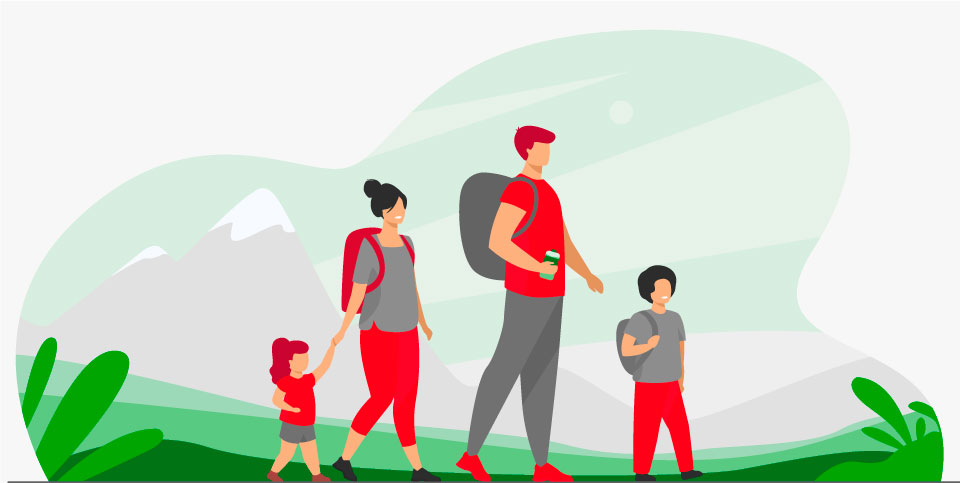Weekly update, 15th May 2020
In this week’s update, we examine the impact of COVID-19 on employment and global trade.
The US economy has shed 36 million jobs in just eight weeks1 with almost three million more Americans filing for unemployment benefits in the last week alone. Meanwhile, Goldman Sachs warns that unemployment could reach 25% in the US this year2, potentially equalling the peak jobless rate during the Great Depression, erasing almost all of the jobs added to the economy in the last decade.
A similar predicament in the UK has seen the Chancellor Rishi Sunak extend the furlough scheme put in place a few months ago to the end of October. This will increase the total cost to the taxpayer to an estimated £123bn, according to the Office for Budget Responsibility3. A busy week for Mr Sunak saw him warn that the UK faces a “significant recession” with figures showing that the economy shrank by 2% in the first quarter4. These are the first signs of the economic damage being caused by the lockdown, something we are following closely. March saw the largest ever monthly fall in GDP (Gross Domestic Product) with a contraction of 5.8%5.
Of the fallout that can be seen from the pandemic, global trade has been one of the most badly affected sectors. Danish company Maersk, the world’s largest container shipping line responsible for 17% of all containers world-wide, expects container volumes to fall up to 25% this year6. The international shipping industry is responsible for the carriage of around 90% of world trade. South Korea, an international trading powerhouse, has been an early indicator of the troubles the pandemic has caused, reporting earlier this week that exports have fallen 46.3% year on year7.
Now in the ninth week of the lockdown, the government has urged the public to “Stay Alert”. This change in messaging was probably the largest difference to the approach, with very little else moving forward for most people, other than those who are unable to work from home. Although the stringency of isolation measures has been reduced slightly (longer walks, more time outside and the possibility of a socially distant round of golf being welcomed by some) the conclusion remains the same, it’s best to stay at home8.
In other news this week, the World Health Organisation (WHO) backed away from supporting a ban on open-air slaughter markets in a bid to prevent further viral outbreaks. It is thought that one such market was the starting point for COVID-19 as animals are kept in close quarters which can lead to the spread of diseases between species9. Last month, conservation experts from many environmental organisations pressured the WHO to support the closure of wet markets and bans on the wildlife trade for the sake of public health10. However, as with most policy reactions to the pandemic, there is a balance to be struck between health, wellbeing, the economy and social needs. The WHO wish to support efforts to improve sanitation at wet markets but also note that they act as an important food source and are a focal point for many communities. These factors will have to be considered when planning future regulatory efforts. The competing environmental, social and cultural arguments mean that the case for an all-out ban is much less clear cut than it might first appear.
The global picture may not be a pretty one, however, as investors it is even more critical not to make rash decisions. In times like this, the disconnect between markets and economics becomes greater, and the process of trying to time and predict actions, never easy under the best circumstances, is now even less accurate than it was previously. That is where expert advice comes in and, as ever, we are here if you need to talk or have any particular worries. For most people, it’s a time to sit tight and remember that Environmental, Social and Governance (ESG) funds are generally out-performing the market11.
Stay safe and we’ll stay in touch.
1 https://www.theguardian.com/business/2020/may/14/unemployment-us-data-coronavirus
2 https://www.cbsnews.com/news/unemployment-rate-could-hit-25-percent-goldman-sachs-predicts/
3 https://news.sky.com/story/coronavirus-cost-of-government-response-climbs-to-123bn-11988142
4 https://www.bbc.co.uk/news/business-52641807
5 https://news.sky.com/story/coronavirus-gdp-down-2-as-uk-economy-struggles-with-pandemic-11987378
6 https://www.wsj.com/articles/maersk-expects-container-shipping-volumes-to-fall-up-to-25-11589388695
8 https://www.bbc.co.uk/news/uk-52605819
11 https://www.tradingandinvestmentnews.co.uk/why-are-ethical-esg-funds-outperforming-the-market/
Content of the articles featured in this publication is for your general information and use only and is not intended to address your particular requirements. They should not be relied upon in their entirety and shall not be deemed to be, or constitute, advice. Although endeavours have been made to provide accurate and timely information, there can be no guarantee that such information is accurate as of the date it is received or that it will continue to be accurate in the future. No individual or company should act upon such information without receiving appropriate professional advice after a thorough examination of their particular situation. We cannot accept responsibility for any loss as a result of acts or omissions taken in respect of any articles. Thresholds, percentage rates and tax legislation may change in subsequent finance acts.



